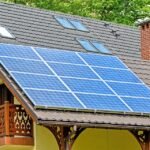Singapore-based fund manager Clime Capital is planning to make 27 new investments in Southeast Asia clean tech firms using blended finance. Supported by institutional investors and the World Bank, Clime Capital will have at least US$127 million to invest, a significant increase from its initial fund of just over US$20 million. The fund’s investees can now receive loans of up to US$10 million, compared to the previous limit of US$1 million. Clime Capital’s previous investments in the Southeast Asia Clean Energy Facility (SEACEF) have resulted in investees raising 27 times the capital provided to them. However, regulatory challenges in the region mean that investments may need to be disbursed in tranches, dependent on policy improvements. Clime Capital’s SEACEF is one of the few blended finance climate initiatives operating in Southeast Asia, aiming to scale up clean energy and reduce reliance on fossil fuels. The fund invests in high-growth opportunities in Indonesia, Vietnam, and the Philippines, including electric mobility, rooftop solar, energy efficiency, and wind power projects. Despite challenges in the Indonesian and Vietnamese markets, Clime Capital remains optimistic about the potential for renewable energy in these countries. The new SEACEF II fund has received support from state-backed agencies, including the British International Investment, Norway’s Norfund, Sweden’s Swedfund International, and the Dutch FMO development bank, as well as the World Bank’s International Finance Corporation. Philanthropic groups such as the Global Energy Alliance for People and Planet and Allied Climate Partners have also pledged support. The fund aims to make 27 early-stage investments, expecting around 14 of them to draw down the full investment amount of around US$10 million each. Clime Capital is also planning to launch a technical assistance scheme to provide pre-investment studies and capacity building for investees. SEACEF II is set to make its first three investments in the next two months and aims to close the funding gap of US$8 million to reach its target fund size.



